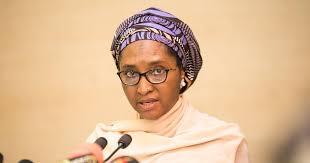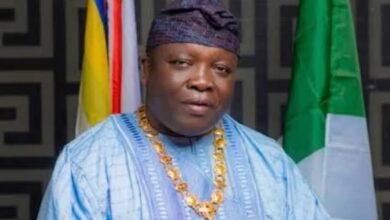2022 Budget Proposal: Fiscal Deficit Rising on Account of Defence Spending

Reactions continue to trail the release of the 2022 Budget Proposal titled: “Budget of Economic Growth and Sustainability,” presented on Thursday by President Muhammad Buhari to the National assembly in a relatively brief session. The President’s presentation was shortened. A more elaborate presentation followed by the Minister of Finance, Budget, and National planning to a smaller gathering on Friday, October 8, 2021. Meanwhile, the N16.39trn budget presented by the President estimates available revenue N10.13trn; this implies that the Federal government’s fiscal operations could result in a N6.62trn deficit.
Analysts believe that the 2022 budget is inadequate to ease the plight of Nigerians. Particularly regards the country’s fiscal position, economists believe that alternative sources of government revenues are needed to reduce the debt service cost. Debt service in 2022 may consume N3.61trn or 22% of the budget. During his presentation, the President assured Nigerians that the country’s debt stock was within permissible limits. However, it confronts a revenue challenge that the government intends to address through the soon-to-be-introduced Strategic Revenue Generation Initiative (SRGI).
A look at the half-year Implementation report for the 2021 budget shows that as of May 2021, the Federal government’s retained revenue was N1.844 trillion, which amounts to 67% in terms of revenue; on the other hand, total expenditure was N4.86 trillion, which represents 92.7% of expenditure performance. Essentially, the 2021 budget suffered revenue shocks significantly earlier in the year when oil prices tanked, implying that a chunk of expenditure was met by deficit financing.
Assumptions of the bill and comparison with those of last year
The 2022 appropriation bill rests on the2022-2024 medium-term economic framework and fiscal stability plan (MTEF/FSP) assumptions. The Expenditure framework, which was passed separately by the lower and upper chambers of the National Assembly in a build-up to the President’s budget presentation last week, assumed a conservative crude oil price of $57/barrel while also projecting the production of 1.88mbpd (including condensate of 300,000-400,000bpd). Given the COVID-19 vaccination rate and global recovery, economists believe that the projected oil price appears plausible and prudent. However, the 1.88mbpd expected oil production rests on optimism about new investment in the newly passed Petroleum Industry Act. The 2022 budget projects an exchange rate of 410.15/$, a GDP growth rate of 4.2%, and a 13% Inflation rate. The World Bank projects Inflation for 2021 to be much higher at 16%.
Budget 2021 in Bold Basic Numbers
The federal government intends to spend a total of N16.39trn in 2022. While the ideal budget size as a proportion of GDP has always been a talking point, analysts note that the 2022 appropriation bill represents a 20.6% increase over the 2021 budget. At a little over 10%, Nigeria’s Budget to GDP ratio is substantially lower than peer countries. Economists have noted that the average African budget to GDP ratio is about 50%. The appropriation bill budgets only N78,000 for each Nigerian.
How the Budget gets spent in 2022
Of the N16.39trn planned spending, statutory transfer accounts for N768.28bn, corresponding to 4.6% of the budget. In 2021, statutory transfers had accounted for N497bn ( 3.6% of last year’s budget). Non-debt recurrent cost is projected to be N6.8trn, N1.24trn higher than the amount incurred in the previous year. N5.35trn would go into capital expenditure, compared to the 2021 budget, this marks a 29.5% increase in the amount allocated to capital projects. As a proportion of the entire budget, capital expenditure (including the capital component of statutory transfers) accounts for 32.64% of government planned spending in 2022; this is slightly larger than the 30.4% share of the budget that capital expenditure got last year. Debt service in 2022 is expected to consume 3.61trn, and while in absolute terms this is higher than last year’s debt service cost by about N400bn, it is 22% of the budget, slightly lower in proportional terms than last year when it accounted for about 23% of the budget. The Federal Government is expected to incur N1.1trn on Personnel costs while Pensions, gratuities, and retiree’s benefits are projected at N577bn. The proposed budget also shows that overheads would take up N792.39b.
Illustration 2: Breakdown of Expenditure in the Approved 2021 Budget & the 2022 Proposed Budget (in Naira)
Proposed Revenue Sources for the 2022 Budget
Total federally collectible revenue is projected at N17.7trn in 2022. Contrnibutable revenue, on the other hand, is expected to reach N12.72trn. However, the Appropriation bill projects that total revenue available to fund the 2022 federal budget as N10.13trn this includes grants and aids (N63.38bn) and income from government-owned enterprises(GOEs). N3.16trnn is expected to be generated as oil proceeds, while non-oil revenue accounts for N2.13trnn. Independent revenue accruing to the Federal government is expected to come in at N1.82trnn.
While there has been a steady rise in Independent revenue, about 30% of retained income in 2022 is expected to derive from oil proceeds. Analysts note that given the oil market’s volatility, the federal government is vulnerable to fiscal shocks.
Budget deficit to GDP exceeds the fiscal responsibility act 2007 threshold
“We need to exceed this threshold considering our collective desire to continue tackling the existential security challenges facing the country”-President Muhammadu Buhari
Further analysis of the budget proposal shows that the Federal government’s fiscal operations in 2022 are projected to result in a deficit of about N6.26trn. The figure amounts to 3.39% of the country’s GDP, which exceeds the recommended threshold of 3% as stated in the Fiscal Responsibility Act 2007. In his defence of the higher budget deficit to the GDP ratio, the President cited instances of many other countries around the world that have, of necessity, also exceeded their fiscal thresholds for the economies to survive and thrive.
Analysts argue that although fiscal deficits can have countercyclical effects in recessionary times, significant and consistent budgetary deficits could be inflationary and are capable of crowding out private borrowing. In Nigeria, budget deficits have perennially been a fixture of the federal government’s fiscal plans. In the approved 2021 budget fiscal deficit was 3.93% of the GDP, while in 2020 deficit as a proportion of GDP was 3.57% (see illustration 1 below)
Generally, analysts distinguish between deficits arising from extra spending and deficits due to lower revenues. When the former is the case, specific sectors witness a short-term improvement. However, where deficits arise from lower revenue, as in the Nigerian case, no such stimulus is likely to occur. In his address, the President alluded to the latter, noting that the country’s increasing debt stock is lower government revenue.
However, he assured the country that through policy reforms around tax administration, a review of the policy effectiveness of tax waivers and concessions, as well as other Revenue Mobilization enhancement strategies to be introduced in 2022, tax and excise revenues should be enhanced, customs revenue through the e-Customs and Single Window initiatives would also be able to fund the country’s significant infrastructural needs.
Meanwhile, justifying the country’s rising debt profile, the President stated: “We have witnessed two economic recessions within the period of this Administration. We had to spend our way out of recession in both cases, which necessitated growing the public debt. It is unlikely that our recovery from each of the two recessions would have grown as fast without the sustained government expenditure funded by debt.”
How the Pie is sliced- Budgetary allocation to Critical Sectors
The 2022 Appropriation bill budgets capital expenditure of N111.8bn for the Educational sector and N593.47bn for the Ministry’s recurrent expenditure. Meanwhile, the Ministry of Health was awarded N462.63bn for recurrent non-debt expenditure but received N116.67bn for capital projects. The Ministry of Defense and the office of the National Adviser get 155.04bn and N46.6bn respectively for capital projects and equipment. The Ministry of Works gets 31.935bn for recurrent expenditure and 388.51bn for capital projects.
In per capita terms, the 2022 budgetary allocation to the educational sector provides a meagre N517 worth of capital expenditure for each of the country’s estimated population of 216million people. In terms of Health, N537 is provided for the average Nigerian while Defense and Security appropriate N717.8 capital spending to each Nigerian. In terms of Infrastructure, each Nigerian gets N1798 worth of capital projects.
These meagre allocations further support the argument that the Nigerian government is underspending, and so rather than reduce spending, the government needs to find more sustainable sources of revenue. In an article, ‘Fasua’s 15trn budget proposal’, Tope Fasua, economist and public commentator, noted that the per capita budget in Nigeria has always been between $115 and $130, which makes the average Nigerian less catered for than the average Kenyan, Moroccan. Macau, Lithuania, Oman, Belarus, and war-torn Libya also perform better in revenue generation.
A Problem and a Promise
“Our target over the medium term is to grow our Revenue-to-GDP ratio from about 8 percent currently to 15 percent by 2025. At that level of revenue, the Debt-Service-to-Revenue ratio will cease to be worrying. Put simply, we do not have a debt sustainability problem, but a revenue challenge which we are determined to tackle to ensure our debts remain sustainable.”-President Muhammadu Buhari
Promises are like pie crust, but budgets are supposed to be a moral document and a critical fiscal tool through which the yearnings of the populace can be realized. Budgets generally require as much clarity about the end as about the means. The President’s Speech and the addresses of the hierarchy of the fiscal authorities seem to suggest that Nigerians should continue to endure the problem of high debt costs, at least in the near term. At the same time, the countrny fixes its revenue problems.
In an article titled “Finding a Way Out of Nigeria’s High Debt Costs,” Dr. Ayo Teriba highlighted what, in his opinion, was ‘the only sensible way’ to solve the debt servicing problems facing the government. According to Teriba, the rising debt to GDP ratio has become a trend in developing and emerging economies taking advantage of the opportunities available to issue non-interest-paying obligations. These countries are also exploring the issuance of public asset-linked debt instruments that are convertible to equity. The securitization of assets has the potentials for reducing debt service and improving Nigeria’s fiscal position.
From Here Forward
While the commitment shown by the legislature and the executive arm of government to achieve a January to December fiscal calendar deserves commendation, in order not to make budget presentations a mere constitutional traditional, the budget implementation must be of top priority. The Federal government must ensure that the budgetary allocations and releases are made as and when due. Simultaneously, the Federal government needs to reach out to the zones on budget implementation to carry citizens along to assuage social restiveness.
Urgently, the Federal government needs to consider alternative sources of revenue more seriously to address the revenue challenges the country is faced with.
The Strategic Revenue Generating Initiatives (SRGI) is a breath of fresh air; however, more stringent controls need to be put in place to ensure that GOEs comply with the required Cost to Income threshold of 50% and where penalties need to be imposed, they should. Likewise, proceeds from concessions and privatization programs can be increased, as a proportion of retained revenue privatization proceeds currently accounts for only 3%. Similarly, the government needs to diversify its revenue source. About 50% of the government revenue is currently related to the volatile international oil market, which has made revenue shocks the order of the day.
The situation with low tax revenue also needs to be addressed; according to the world bank, Nigeria has continued to achieve a 5-6% tax revenue to GDP ratio -the lowest in the world. Analysts, however, argue that the failure to pay taxes by eligible citizens is an outcome of the large amount of informal taxes paid to pon-state actors. According to the FIRS chairman, the Nigerian tax base comprises 41million people (tax base). Only N1trn was generated last year in direct taxes; this is inextricably linked with the prevalence of non-state actors and the illegal taxes they levy. Citizens would tend to avoid official taxes if they were not relieved of the current unofficial taxes.
There equally is a need to hold the feet of sub-nationals to the fire, as the National budget (or National cake) includes both federal and state budgets. When state governments fail to live up to their duties, and all the attention is focused on the federal government, there is a misalignment of revenue and responsibilities at the national level, in which case, too little is available for the Federal government to allocate too many competing areas. Finally, analysts believe the government must consider new ways of tackling the problem of insecurity in the country; N985.75bn was given to Defense for recurrent expenditure- such a situation constrains the resources available for growth-stimulating, job-creating public spending




